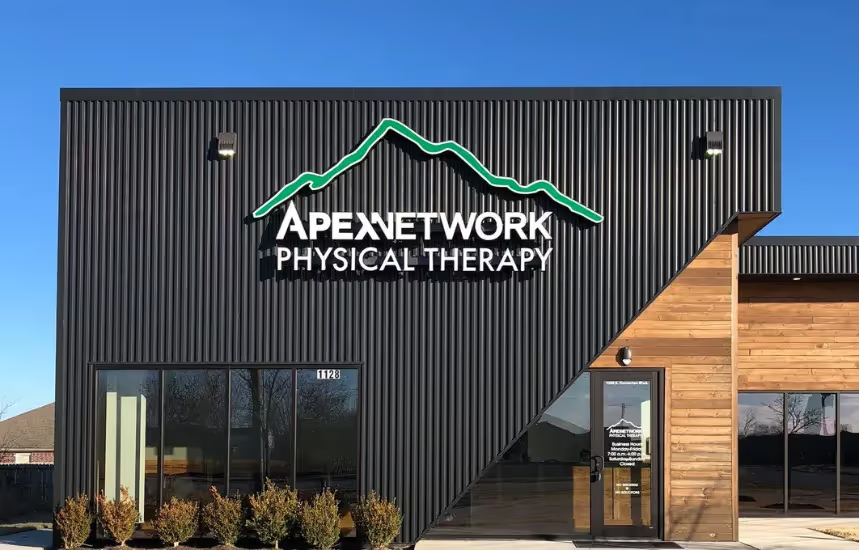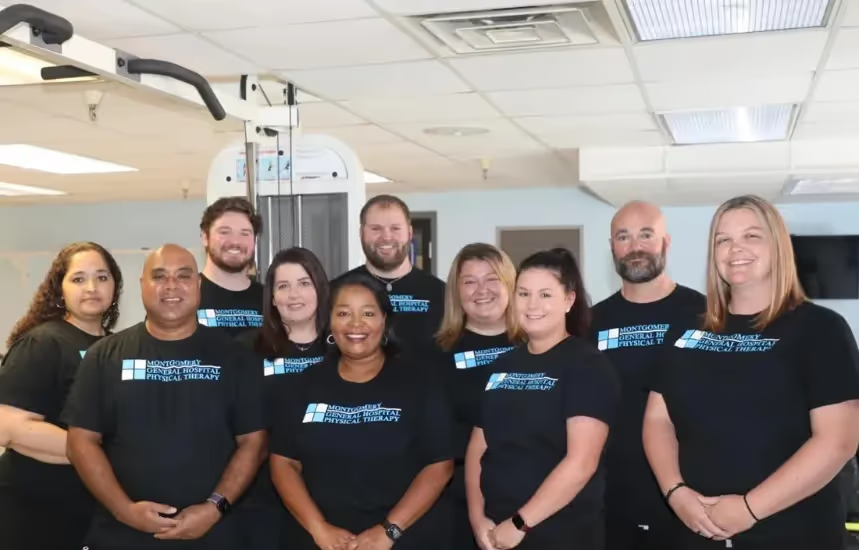Top Physical Therapy Franchises in 2025


Franchise Opportunities By Industry
Franchise Opportunities By Location
Franchise 101
By Investment Level
Franchise Consultant
White Paper
Playbook


Explore fantastic prospects within the realm of physical therapy franchising. Immerse yourself in our compilation for the year 2025, where we present the finest choices, organized by expenses and market demand - ranging from affordable investments to thriving sectors. Embark on your journey towards becoming a physical therapy entrepreneur today.
This category involves a network of physical therapy clinics or centers collaborating to provide a wide spectrum of rehabilitation services. The emphasis is on offering a variety of therapies and treatments for different musculoskeletal conditions and injuries. These networks often have multiple locations, making it convenient for patients to access specialized care and expertise. Patients may benefit from a diverse team of therapists, a range of equipment, and various techniques tailored to individual needs.
Founded in: 1999
Franchising since: 2007
Franchise Units: 90
Initial investment range: $165,650 - $349,800
Initial Franchise Fee: $35,000
Royalty: 8%
ApexNetwork Physical Therapy is a renowned franchise in the healthcare industry that specializes in providing high-quality physical therapy services. With a strong commitment to patient-centered care and advanced treatment techniques, ApexNetwork has established itself as a trusted name in the field. Their clinics are equipped with state-of-the-art facilities and staffed by experienced and licensed therapists dedicated to helping patients recover from injuries, manage chronic conditions, and enhance their overall well-being.
Entrepreneurs interested in an ApexNetwork Physical Therapy franchise should bring a passion for healthcare, business savvy, and a commitment to maintaining the franchise's exceptional patient care standards. Training, ongoing support, and community engagement are key pillars for success in delivering high-quality physical therapy services while benefiting from an established brand.

Immediate access providers prioritize delivering quick and accessible physical therapy services. This could involve walk-in appointments, same-day scheduling, or extended clinic hours to accommodate patients' busy schedules. The focus is reducing wait times between injury or discomfort onset and the actual therapy session. Such providers might be particularly appealing for individuals who need prompt attention to manage pain, recover from minor injuries, or receive immediate care after surgery.
Founded in: 2011
Franchising since: 2015
Franchise Units:
Initial investment range: $152,741 - $279,100
Initial Franchise Fee: $32,611 - $22,392
Royalty: 7%
Physical Therapy Now is a leading healthcare company specializing in comprehensive physical therapy services. Focusing on advanced techniques and patient-centered care, they provide effective treatments for various injuries and conditions, promoting recovery and overall wellness.
Prospective franchisees of Physical Therapy Now should embody a dedication to healthcare, possess strong business acumen, and prioritize exceptional patient care. The franchise offers robust training and ongoing support and emphasizes community engagement to deliver top-notch physical therapy services under an established and respected brand.

This category specializes in addressing balance-related issues alongside standard physical therapy services. These providers cater to individuals with various balance concerns, which might stem from age-related factors, injuries, vestibular disorders, or neurological conditions. In addition to rehabilitation techniques, these centers often incorporate specialized exercises and assessments to enhance patients' balance, stability, and mobility. The goal is to improve not only physical strength but also coordination and equilibrium.
Founded in: 2012
Franchising since: 2013
Franchise Units: 444
Initial investment range: $164,000 - $473,000
Initial Franchise Fee: $49,000
Royalty: 6%
Fyzical Therapy and Balance Centers stand as a prominent healthcare company, specializing in comprehensive physical therapy and balance services. Their commitment to advanced care techniques fosters recovery from injuries and enhances balance, promoting overall well-being.
Aspiring franchisees of Fyzical Therapy and Balance Centers should share a genuine passion for healthcare, coupled with adept business skills. The franchise provides thorough training, consistent support, and underscores community involvement to ensure the delivery of exceptional physical therapy and balance solutions under an established and esteemed brand.

The domain of physical therapy emerges as an increasingly lucrative sector, poised for substantial expansion in the forthcoming years. As of September 2021, the physical therapy industry in the United States alone commanded an approximate valuation of $34.5 billion, with a projected compound annual growth rate (CAGR) of 6.2% from 2021 to 2028.
Within the franchise paradigm, the path to profitability traverses a multifaceted landscape, influenced by diverse variables such as brand reputation, franchisor support, geographic location, and the astuteness of managerial prowess. Renowned franchisors, known for furnishing comprehensive business models, robust training programs, marketing assistance, and a trusted brand identity, typically foster a heightened probability of success for franchisees compared to their independent counterparts.
While precise revenue and profitability figures may significantly diverge across different franchises, numerous physical therapy franchises have substantiated their commendable financial performance. Notably, select well-established physical therapy franchises have reported average revenue per location surpassing the million-dollar milestone, accompanied by profit margins spanning a range of 10-15%.

The initial investment and opening costs for physical therapy franchises can vary widely depending on factors such as the franchise brand, location, size of the facility, equipment needs, and local market conditions. It's important for potential franchisees to thoroughly understand these costs before committing to a franchise opportunity. Here are some key points to consider:
1. Franchise Fee: Franchisees typically pay an upfront franchise fee to gain the rights to operate under the franchise brand. This fee can range from several thousand to tens of thousands of dollars, depending on the franchise.
2. Build-Out and Facility Setup: The cost of setting up the physical therapy clinic includes leasehold improvements, interior design, signage, and equipment installation. Costs can vary based on the size of the space, location, and the extent of renovations required.
3. Equipment and Supplies: Physical therapy clinics require specialized equipment, such as treatment tables, exercise machines, therapeutic devices, and more. These costs can add up significantly and vary based on the services offered.
4. Licensing and Permits: Obtaining necessary licenses, permits, and certifications to operate a healthcare facility can incur additional costs.
5. Staffing and Training: Hiring and training licensed physical therapists, support staff, and administrative personnel is essential. Budgeting for salaries, benefits, and training is a critical consideration.
6. Marketing and Branding: Launching a marketing campaign to introduce the clinic to the local community and attract patients is essential. Costs for branding, website development, and initial marketing efforts should be factored in.
7. Operational Expenses: Monthly operational expenses include rent, utilities, insurance, supplies, payroll, marketing, and ongoing franchise fees. Estimating these ongoing costs is crucial for financial planning.
8. Technology and Software: Physical therapy clinics often require electronic medical records (EMR) systems, scheduling software, and other technology solutions to manage patient information efficiently.
9. Working Capital: It's important to have a buffer of working capital to cover operational expenses during the initial phase before the clinic becomes profitable.
10. Legal and Professional Fees: Engaging legal and financial professionals for reviewing franchise agreements, leases, and setting up business structures can entail additional costs.
11. Contingency: Unforeseen expenses can arise during the setup phase or early operations. Having a contingency fund is prudent to address unexpected costs.
The initial investment and opening costs for physical therapy franchises can range from tens of thousands to hundreds of thousands of dollars, depending on various factors. Franchisees should conduct thorough due diligence, review the franchise disclosure document (FDD) carefully, and work with financial advisors to create a comprehensive business plan that accounts for all potential expenses. This preparation is crucial to ensure a successful and sustainable start for the physical therapy franchise.
Opening a physical therapy franchise can offer several benefits for entrepreneurs interested in the healthcare industry. Here are some advantages to consider:
Opening a physical therapy franchise offers numerous benefits, including access to a recognized brand, comprehensive support, marketing resources, and a proven business model. For individuals looking to enter the healthcare industry with a degree of security and guidance, a physical therapy franchise can be a promising avenue.
When opening a physical therapy franchise, careful consideration of several key points is essential to ensure a successful venture. Here's what you should pay attention to:
1. Franchise Selection: Research and choose a reputable physical therapy franchise with a proven track record, strong brand recognition, and a supportive franchisor.
2. Market Analysis: Assess the local market to identify demand for physical therapy services, existing competition, and potential patient demographics.
3. Location: Choose a strategic location that is easily accessible, preferably near medical facilities, fitness centers, or areas with high foot traffic.
4. Licensing and Regulations: Familiarize yourself with the healthcare regulations, licensing requirements, and legal considerations in your region to ensure compliance.
5. Initial Investment: Understand the initial investment costs, including franchise fees, equipment, build-out expenses, staffing, and working capital.
6. Franchise Agreement: Thoroughly review the franchise agreement, understanding the terms, fees, and obligations. Seek legal counsel if necessary.
7. Training and Support: Ensure the franchisor provides comprehensive training in clinical protocols, business operations, marketing, and other essential aspects.
8. Quality of Care: Prioritize patient care excellence by hiring licensed and experienced therapists and adhering to best practices in treatment.
9. Marketing and Branding: Develop a marketing plan to promote your clinic, leveraging the franchise's branding resources and strategies. Establish a strong online presence.
10. Staffing: Recruit and hire skilled physical therapists and support staff who share your commitment to patient care.
11. Equipment and Technology: Invest in high-quality equipment and stay updated with technological advancements in the physical therapy field.
12. Operational Efficiency: Implement efficient workflows for patient scheduling, billing, and records management to optimize clinic operations.
13. Patient Experience: Create a welcoming and comfortable environment for patients, focusing on their experience and satisfaction.
14. Insurance and Billing: Understand the insurance reimbursement process, billing procedures, and ensure accurate documentation to facilitate smooth payments.
15. Networking: Establish relationships with local healthcare providers, physicians, and community organizations to increase patient referrals.
16. Continuous Learning: Stay updated on industry trends, research, and advancements to provide the latest and most effective treatments.
17. Financial Management: Monitor your clinic's financial performance, manage expenses, and plan for sustainable growth.
18. Patient Privacy: Adhere to patient privacy regulations (HIPAA) and maintain strict confidentiality of patient records.
19. Long-Term Vision: Develop a long-term business plan that outlines your goals, expansion strategies, and ways to adapt to changes in the healthcare landscape.
20. Feedback and Improvement: Listen to patient feedback and continually seek ways to improve services, facilities, and patient outcomes.
Opening a physical therapy franchise requires careful planning, dedication to patient care, and a willingness to adapt to the evolving healthcare industry. By paying attention to these points and working closely with the franchisor, you can create a successful and rewarding franchise venture. It's always recommended to conduct thorough research and consult with the franchise company, a lawyer, and an accountant before making decisions.
Founded in: 1999
Franchising since: 2012
Franchise Units: 7
Initial investment range: $248,000 – $473,000
Initial Franchise Fee: $60,000
Royalty: 9%
Project Walk is a pioneer in the field of paralysis recovery and provides an advanced and manual form of body weight supported therapy for individuals suffering from spinal cord injuries. The franchise model offers a unique opportunity for entrepreneurs to make a profound impact on people's lives.
Founded in: 1999
Franchising since: 2007
Franchise Units: 1,800
Initial investment range: $30,000 – $225,000
Initial Franchise Fee: $30,000
Royalty: 9%
Embracing the health-conscious vending industry, Healthy YOU Vending emerges as a trailblazing franchise, committed to proffering nourishing snack and beverage alternatives via convenient vending machine formats. Positioned as a frontrunner, the brand astutely recognizes the escalating demand for wholesome on-the-go options, providing entrepreneurs with a distinctive business prospect. Strategically stationed within schools, offices, and community hubs, their vending machines boast an extensive array of offerings, encompassing nourishing snacks, beverages, and even nutritious entrées. Augmented by comprehensive training, unwavering support, and the adaptable framework of a vending machine business model, Healthy YOU Vending beckons as an enticing opportunity for individuals seeking to tap into the burgeoning health and wellness market.